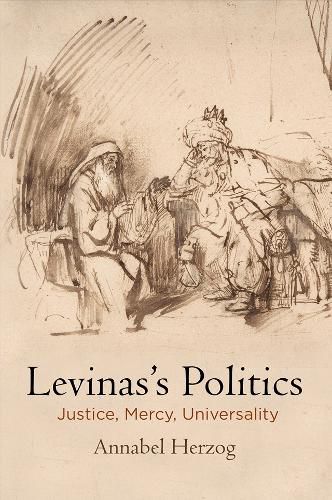Readings Newsletter
Become a Readings Member to make your shopping experience even easier.
Sign in or sign up for free!
You’re not far away from qualifying for FREE standard shipping within Australia
You’ve qualified for FREE standard shipping within Australia
The cart is loading…






A compelling account of politics and social philosophy in Levinas’s Talmudic commentaries
Emmanuel Levinas (1906-1995) was a French philosopher known for his radical ethics and for his contribution to Jewish thought in his commentaries on Talmudic sources. In Levinas’s Politics, Annabel Herzog confronts a major difficulty in Levinas’s philosophy: the relationship between ethics and politics. Levinas’s ethics describes the encounter with the other, that is, with any other human being. For Levinas, the face-to-face encounter is a relationship in which the ego is commanded by a transcendent and unquestionable order to take responsibility for the other person. Politics, on the other hand, presupposes at least three people: the ego, the other, and any third party. Among three people, nothing can be transcendent; on the contrary, everything must be negotiated.
Against the conventional view of Levinas’s conception of the political as the interruption and collapse of the ethical, Herzog argues that in the Talmudic readings, Levinas constructed politics positively. She shows that Levinas’s Talmudic readings embody a pragmatism that complements, revises, and challenges the extreme ethical analyses he offers in his phenomenological works-Totality and Infinity, Otherwise than Being, and Of God Who Comes to Mind. Her analysis illuminates Levinas’s explanations of the relationship between ethics and politics: ethics is the foundation of justice; justice contains a necessary violence that must be moderated by mercy; and justice, general laws, and national aspirations must be linked in an attempt to improve universality itself.
$9.00 standard shipping within Australia
FREE standard shipping within Australia for orders over $100.00
Express & International shipping calculated at checkout
A compelling account of politics and social philosophy in Levinas’s Talmudic commentaries
Emmanuel Levinas (1906-1995) was a French philosopher known for his radical ethics and for his contribution to Jewish thought in his commentaries on Talmudic sources. In Levinas’s Politics, Annabel Herzog confronts a major difficulty in Levinas’s philosophy: the relationship between ethics and politics. Levinas’s ethics describes the encounter with the other, that is, with any other human being. For Levinas, the face-to-face encounter is a relationship in which the ego is commanded by a transcendent and unquestionable order to take responsibility for the other person. Politics, on the other hand, presupposes at least three people: the ego, the other, and any third party. Among three people, nothing can be transcendent; on the contrary, everything must be negotiated.
Against the conventional view of Levinas’s conception of the political as the interruption and collapse of the ethical, Herzog argues that in the Talmudic readings, Levinas constructed politics positively. She shows that Levinas’s Talmudic readings embody a pragmatism that complements, revises, and challenges the extreme ethical analyses he offers in his phenomenological works-Totality and Infinity, Otherwise than Being, and Of God Who Comes to Mind. Her analysis illuminates Levinas’s explanations of the relationship between ethics and politics: ethics is the foundation of justice; justice contains a necessary violence that must be moderated by mercy; and justice, general laws, and national aspirations must be linked in an attempt to improve universality itself.